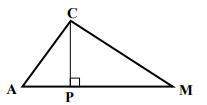Which is the graph of y = ⌊x⌋ – 2?
on a coordinate plane, a step graph has horizontal s...

Mathematics, 19.11.2019 22:31 mv603177
Which is the graph of y = ⌊x⌋ – 2?
on a coordinate plane, a step graph has horizontal segments that are each 1 unit long. the left end of each segment is a closed circle. the right end of each segment is an open circle. the left-most segment goes from (negative 5, negative 5) to (negative 4, negative 5). each segment is 1 unit higher and 1 unit farther to the right than the previous segment. the right-most segment goes from (4, 4) to (5, 4).
on a coordinate plane, a step graph has horizontal segments that are each 1 unit long. the left end of each segment is an open circle. the right end of each segment is a closed circle. the left-most segment goes from (negative 5, negative 5) to (negative 4, negative 5). each segment is 1 unit higher and 1 unit farther to the right than the previous segment. the right-most segment goes from (4, 4) to (5, 4).
on a coordinate plane, a step graph has horizontal segments that are each 1 unit long. the left end of each segment is a closed circle. the right end of each segment is an open circle. the left-most segment goes from (negative 3, negative 5) to (negative 2, negative 5). each segment is 1 unit higher and 1 unit farther to the right than the previous segment. the right-most segment goes from (4, 2) to (5, 2).
on a coordinate plane, a step graph has horizontal segments that are each 1 unit long. the left end of each segment is an open circle. the right end of each segment is a closed circle. the left-most segment goes from (negative 4, negative 5) to (negative 3, negative 5). each segment is 1 unit higher and 1 unit farther to the right than the previous segment. the right-most segment goes from (4, 3) to (5, 3).

Answers: 2
Another question on Mathematics

Mathematics, 21.06.2019 20:30
Does the function satisfy the hypotheses of the mean value theorem on the given interval? f(x) = 4x^2 + 3x + 4, [−1, 1] no, f is continuous on [−1, 1] but not differentiable on (−1, 1). no, f is not continuous on [−1, 1]. yes, f is continuous on [−1, 1] and differentiable on (−1, 1) since polynomials are continuous and differentiable on . there is not enough information to verify if this function satisfies the mean value theorem. yes, it does not matter if f is continuous or differentiable; every function satisfies the mean value theorem.
Answers: 1

Mathematics, 21.06.2019 21:50
What is the 17th term in the arithmetic sequence in which a6 is 101 and a9 is 83
Answers: 1

Mathematics, 22.06.2019 02:10
The formula to determine energy is e=1/2mv2? what is the formula solved for v?
Answers: 1

You know the right answer?
Questions


English, 18.11.2020 20:50

Mathematics, 18.11.2020 20:50

Mathematics, 18.11.2020 20:50

Biology, 18.11.2020 20:50


Mathematics, 18.11.2020 20:50

Mathematics, 18.11.2020 20:50

English, 18.11.2020 20:50



Arts, 18.11.2020 20:50


Biology, 18.11.2020 20:50

Arts, 18.11.2020 20:50

History, 18.11.2020 20:50

Engineering, 18.11.2020 20:50

Computers and Technology, 18.11.2020 20:50

Mathematics, 18.11.2020 20:50




